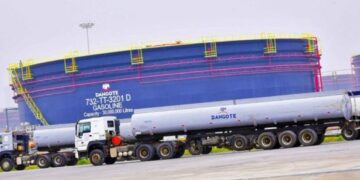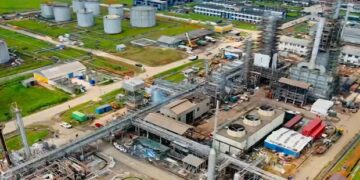The Nigerian Upstream Petroleum Regulatory Commission (NUPRC) yesterday met with crude oil producers as well as refinery owners in Nigeria in a bid to ensure full adherence to Domestic Crude Oil Supply Obligation (DCSO) as enunciated under section 109(2) of the Petroleum Industry Act (PIA). The section compels crude oil producers in the country under the Oil Producers Trade Section (OPTS) and the Independent Petroleum Producers Association (IPPG) to reserve a portion of the total crude produced to local refineries instead of exporting all the commodities. Refinery owners have consistently complained about the non-availability of crude oil for their facilities, resulting in redundancy and huge losses.
But at the stakeholders’ engagement on the implementation of the DCSO, the chief executive of the NUPRC, Gbenga Komolafe, told the oil-producing companies that the commission had received complaints, which he said were concerning. “The complaints received so far from within the commission, oil producers, and Dangote refinery that are of concern to the commission include the Inability to factor in the provisions of the law while executing contractual agreements. This has resulted in some companies being reluctant to allocate a portion of their production to domestic refineries. Change in vessel nomination under 24 hours to lay can, inability to provide the required financial instrument backing before loading, delay in the expected time of arrival of vessels resulting in production cut which is inimical to our national budgetary targets. Frequent change in laycans for crude oil allocated to domestic refineries and delays at loading terminals after the arrival of the loading vessel,” he said. He reminded the companies of section 109 of the PIA 2021, which mandates the allocation of a portion of crude oil produced by their respective companies to domestic refineries in operations.












































































